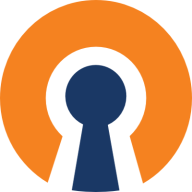

OpenVPN Access Server and Check Point Harmony SASE are prominent contenders in the network security solutions market. OpenVPN Access Server gains an edge in affordability and ease of use, making it ideal for smaller enterprises, while Check Point Harmony SASE is more suited for larger organizations due to its comprehensive features and robust security.
Features: OpenVPN Access Server is celebrated for its open-source framework, making it affordable and highly configurable. It seamlessly integrates with different platforms, including Linux, and supports easy setup with two-factor authentication. Check Point Harmony SASE offers a cloud-native platform with Zero Trust Network Access, Secure Web Gateway, and real-time threat intelligence for enhanced data protection and privacy.
Room for Improvement: OpenVPN Access Server requires enhanced scalability, GUI-driven configuration, and detailed logging. Check Point Harmony SASE can improve its integration with third-party identity providers, reporting analytics, and make initial configuration simpler for non-tech users.
Ease of Deployment and Customer Service: OpenVPN Access Server is known for an uncomplicated setup, suited for on-premises and public cloud deployment, backed by a strong open-source community. Check Point Harmony SASE provides deployment flexibility across private, public, and hybrid clouds, and is supported by a responsive and knowledgeable customer service team.
Pricing and ROI: OpenVPN Access Server is a cost-effective solution, especially suitable for startups with its open-source nature and affordable optional paid support. Check Point Harmony SASE is pricier but offers substantial security and efficiency returns, making it competitive in the SASE sector and advantageous for larger enterprises with complex needs.
Check Point Harmony SASE (formerly Perimeter 81) blocked access to those URLs at the network level before users could click through.
We are saving 40% of our time, which is good.
I would rate support 10 out of 10.
People working really hard, listening to every issue and request, and replying within hours.
It was very good, and I would rate it an eight.
I have not dealt with support or customer service, however, the documentation is good, and I would rate it a seven out of ten.
The cloud-native model ensures we are not tied to any specific location or hardware, which has been a great game changer in terms of agility.
I would rate it nine out of ten for scalability.
Check Point Harmony SASE's scalability is good; it can handle growth easily, allowing me to easily add another region and gateway to have more people join in.
It's not very easy to expand, and it would be beneficial if the process were simpler.
It does not utilize much memory or CPU on the VM.
I would give OpenVPN a six out of ten for scalability, as it's usually a single user or single device.
There are some lags and glitches with connectivity, so I would rate the stability as between seven or eight out of ten.
After the last improvement, I can say it is much more stable now.
Check Point Harmony SASE is stable most of the time, but there are still some issues that are hard to troubleshoot.
A local data center in Turkey would enhance the product, as currently, our Internet traffic goes to another country, which is problematic for us.
One area for improvement is integration with third-party identity providers.
The product is lacking features that other competitors have, making it quite challenging to migrate customers to this solution because it feels very much unfinished.
If they had a one-click setup where you provide credentials instead of manually running commands, that would be beneficial.
If there was a dedicated plan for startups, it would be really helpful.
OpenVPN could improve in centralized management.
Cost efficiency is a consideration, as SASE products are not the cheapest security products.
The cost is a bit expensive for most users.
It is a bit expensive.
My experience with pricing is excellent as the pricing is free.
The experience with pricing, setup cost, and licensing for OpenVPN Access Server is really good, not that expensive.
The firewall management is the most valuable feature for me.
The Zero Trust Network Access (ZTNA) feature is a major highlight as it gives users seamless and secure access to internal resources without requiring a full-blown VPN, which improves both security and user experience.
The Zero Trust and segmentation have helped my team and our customers significantly because we are able to protect every scope and allow the work-from-home users to access internal resources while passing through a threat prevention gateway, ensuring that everything is safe.
The most valuable features of OpenVPN are its ease of use, client familiarity, end-user familiarity, operating system integration, and price points.
What I appreciate the most about OpenVPN Access Server is that it's very easy to set up.
Before using OpenVPN Access Server, only developers mainly had access to databases. We can create read-only users for databases and internally give them access using OpenVPN Access Server.
| Product | Market Share (%) |
|---|---|
| OpenVPN Access Server | 13.4% |
| Check Point Harmony SASE (formerly Perimeter 81) | 3.3% |
| Other | 83.3% |


| Company Size | Count |
|---|---|
| Small Business | 53 |
| Midsize Enterprise | 20 |
| Large Enterprise | 13 |
| Company Size | Count |
|---|---|
| Small Business | 31 |
| Midsize Enterprise | 7 |
| Large Enterprise | 14 |
Check Point Harmony SASE, formerly Perimeter 81, offers robust security features like split tunneling, MFA, and Zero Trust Network Access focused on secure remote access and optimized connectivity for remote teams.
Check Point Harmony SASE delivers advanced security through a user-friendly interface, efficient VPN connections, and a centralized management console. It enhances security with real-time threat intelligence from ThreatCloud and traffic management via built-in optimization. Firewall as a Service and Secure Web Gateway safeguard against unauthorized access and phishing. While users seek enhanced networking customizations and better integration with identity providers, there's an emphasis on improving reporting, real-time analytics, and policy management. Requests also include a Chrome extension, traffic balancing, and simplified configuration to address some resource-intensive aspects.
What are the key features of Check Point Harmony SASE?
How can organizations benefit from using Check Point Harmony SASE?
Check Point Harmony SASE is used across industries for secure remote access and connectivity, protecting sensitive data, and managing access to corporate resources. It is ideal for those with hybrid cloud models and requires comprehensive security measures combined with existing IT infrastructures to meet specific industry demands.
OpenVPN Access Server Enterprise provides secure, scalable remote access with strong encryption and cross-platform compatibility, leveraging open-source flexibility for cost-effectiveness. It's ideal for connecting remote workers, maintaining privacy, and securing network communications.
OpenVPN Access Server Enterprise is renowned for its ease of setup and adaptability, supporting Linux and different operating systems, which ensures robust security and seamless integration across network scenarios. With features like two-factor authentication and customizable installers, it emphasizes privacy and remote connectivity. While it offers robust documentation and community support, there are challenges with user management due to the lack of a simple GUI. Users note stability issues under heavy traffic, and improvements in security features and configuration automation are desired. Despite these areas for enhancement, it remains a reliable choice for secure remote access.
What are the key features?
What benefits and ROI should users seek?
In industries such as finance and healthcare, OpenVPN Access Server Enterprise secures sensitive data while enabling remote access across LANs and VPCs. It's utilized for encrypted traffic protection, facilitating site-to-site VPNs, and connecting mobile workers securely, thus maintaining data integrity in interoffice communications and IoT platforms.
We monitor all Enterprise Infrastructure VPN reviews to prevent fraudulent reviews and keep review quality high. We do not post reviews by company employees or direct competitors. We validate each review for authenticity via cross-reference with LinkedIn, and personal follow-up with the reviewer when necessary.